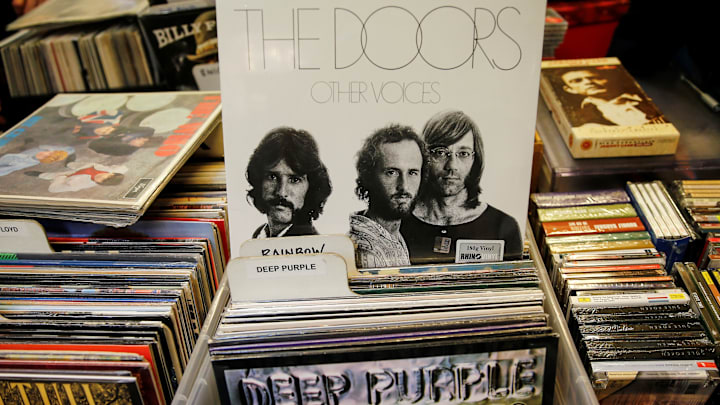People tend to listen to music they resonate with most strongly, but not exclusively. After all, don't most music fans listen to stuff that doesn't "resonate" as strongly as other material, perhaps for variety's sake? Surely, the music people connect with often reflects their emotions, experiences, or identity. but sometimes people listen to something more because that's what they heard when they were young — as if those songs were the signs of the times.
Individuals explore music for different reasons, such as curiosity, cultural exposure, or the desire to experience something new. Maybe certain music seems more "real" than others. Of course, if we're talking punk rock purist mindsets, some bands might seem like bigger sellouts than others.
So there are many different key factors that explain the variety in music choices. Just as there are so many different varieties of "rock" music itself, there are many different emotional and intellectual connections people can have with music overall. Yes, people most often gravitate toward music that resonates with their emotional state, offering comfort, understanding, or even a sense of solidarity.
This is usually music that provides a "feel-good" vibe to the person. However, cultural or social identity can be more complex than that, and not all music or art is about feeling good per se. Music can affirm one's identity or sense of belonging, especially within specific subcultures, age groups, or social settings, and let's explore that a little bit.
Variety of music is the spice of life
Speaking personally, I take a little pride in listening to different genres. In fact, I almost feel obligated to do that, as odd as it sounds. It's sort of like food: Do I really want to just have the same thing over and over again, even if I enjoy it? Nah, variety is the spice of life, and I sometimes like to spice things up. Also, just as with food, I like to be able to say, "Hey, I at least gave it a chance!"
I also appreciate that I have options, in case I get bored with something. There really is something to be said about variety, and much of it is good. For example, if I want superficially "intense and rebellious" music that's largely devoid of thought-provoking lyrics, I can listen to Mötley Crüe or Kiss.
However, if I want more overtly politically rebellious songs (that tend to rock a bit harder), I can listen more to 1980s hardcore punk rock. Of course, some people listen to certain kinds of music when they are, you know...getting busy. In some cases, they might not listen to that music often otherwise.
Escapism and exploration in music
Some listeners seek music that challenges them or takes them out of their comfort zone. That's what drew me to avant-garde music in my high school days (and yes, I actually like some of it). Granted, I do not exclusively listen to "experimental music," but I respect people who take chances sometimes, because conventional escapist musical content can get a little boring sometimes (at least for me).
As a high school website notes, one working definition of escapism is "the tendency to seek distraction and relief from unpleasant realities, especially by seeking entertainment or engaging in fantasy."
Of course, to an extent, all art has some element of escapism to, but that has as much to do with the person perceiving it as the intent of the artist. So my own musical tastes include genres I don’t necessarily relate to at all times, but appreciate for novelty, complexity, or momentary enjoyment.
Nostalgia and mood regulation in music
Music from certain periods of one's life may hold sentimental value, even if it no longer aligns with their current emotional or experiential resonance. I find this being true of me pretty often. Some songs I basically hated in my younger days are surprisingly more tolerable now, due to the power of nostalgia; those songs take me back in time (or so my brain tricks me into feeling). So, in a way, music is like a magical time machine sometimes, and I can more easily enjoy some trash from the past than present-day garbage, because that's the quirky way the mind works. Memories are often linked to music.
Lastly, I should mention how music works for mood regulation. People might listen to music that contrasts with their mood to either elevate or ground themselves. Have a hard day at work? You'll probably listen to music more for comfort. Are you one of those people who works out at a gym? Well, a lot of people there might crank up some heavy metal instead of listening to Tiny Tim (though if you work out or do anything competitive to "Tiptoe Through the Tulips," that's oddly possibly one of the most bad-ass psych-out strategies imaginable — congratulations!).
Ultimately, while resonance is important, it’s just one of many reasons people listen to music. Feeling all bubbly inside can be nice, which is why we have empty-headed pop jingles, but sometimes you just want to rage against the machine, too, right? Right!
